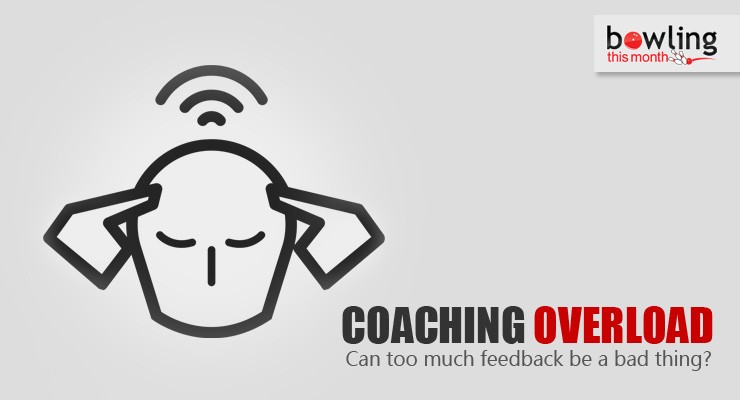Article Contents
- 1. Coach feedback- is more better?
- 2. 100 percent feedback is not always best
- 3. Why is more feedback less effective?
- 4. Feedback and skill level
- 5. Conclusion
- 6. References
Note: This article is only available to Bowling This Month subscribers.
In previous discussions of Coaching Concepts, I asked successful coaches to provide their coaching philosophies about motor learning concepts. Some of the questions I asked were related to how frequently they provide verbal feedback, how quickly after the attempt feedback is provided, and whether they provide instruction about the whole delivery or break it down into parts during a practice session.
With this discussion and the coaches’ answers in mind, I now turn to explaining the research behind these questions, discussing why the frequency of feedback is important to consider when coaching, and also supplement the material covered with a further discussion about the responses as a whole.
Coach feedback- is more better?
If you have been following my articles in BTM, you may already know the answer to the question, “Is more feedback from coaches better?” The short answer to this question is no, more feedback is not necessarily better. The long answer is also no, but it depends on the skill level and where that athlete is in relation to the stage of learning (i.e., novice, somewhat experienced, or experienced bowler).
Many coaches are presented with a dilemma about how much feedback to provide. Some may believe that because they are being paid for their knowledge, feedback needs to be non-stop and as frequent as possible, even when shots are executed relatively well. 80 percent of the coaches suggested that they provide frequent feedback to athletes. Most explained that personality and/or ability level was a deciding factor about how much feedback is given. They also suggested that the more experienced bowlers receive less feedback than novice bowlers.
100 percent feedback is not always best
When considering how much feedback coaches and instructors should give to determine what is best for learning, researchers usually ask participants in studies to ...
Already a premium member? Click here to log in.


